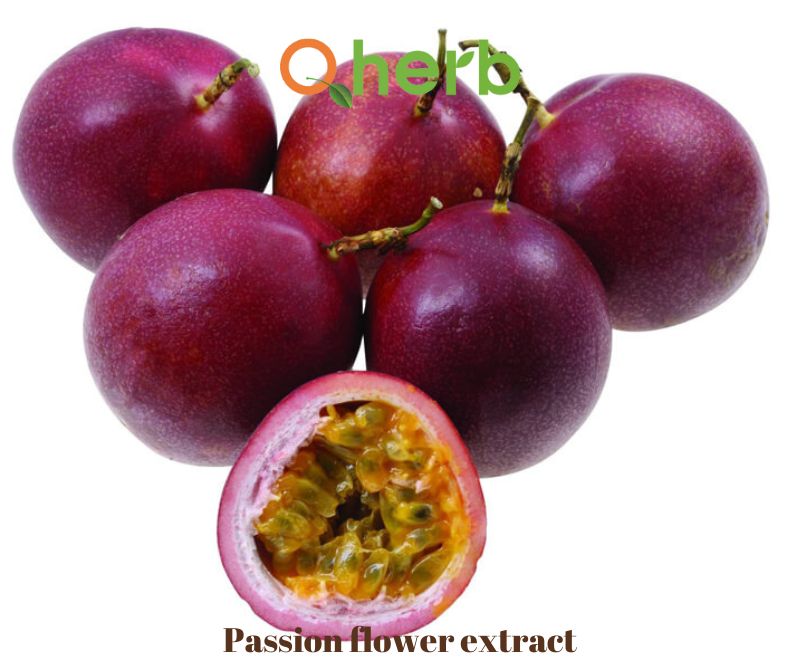Passion flower: discover all the properties and benefits
The Passion flower extract (Passiflora incarnata L.) is a plant native to the Americas, traditionally used to relieve mental stress and promote sleep. Among the numerous active compounds naturally present in the flowers of passion flower stands vinexin, a flavonoid with relaxing and relaxing properties. Passion flower extract is effective against stress and can be used for relaxation, sleep and stress, mental wellbeing and regulation of gastrointestinal motility and elimination of gas.
Plus
The titrated and standardized plant extract keeps the natural active ingredients qualitatively and quantitatively constant, ensuring the product stability, bioavailability, and efficacy.
Benefits
1. Relaxation (sleep, in case of stress)
2. Mental well-being
3. Regulate gastrointestinal motility and elimination of gases
4. Curiosity
The passion flower (Passiflora incarnata L.) is a climbing plant native to the Americas, known since ancient times for its effectiveness against anxiety and insomnia. The flowers are appreciated for the richness of the colors and the particularity of the form; the fruit is the sweet and sour 'passion fruit,' also known as maracuja.
Passion flower extract contain numerous bioactive compounds that contribute to the therapeutic effects of the plant, probably synergistically; among these emerge the flavonoids, among which the vitexin, and the alkaloids.
The effectiveness of Passion flower extract of passion flower has been demonstrated particularly in anxiety and sleep disorders.
Further benefits, only in animal studies, have been observed in the control of neuropathic pain, while in man the passionflower seems to be profiling an adjuvant agent in the reduction of dependence on smoking, alcohol, cannabis, and benzodiazepines.
Medicinal Benefits:
Its calming action of the nervous system ensures a peaceful night's sleep without revival. Induces a sleep similar to the physiological one, without causing either stunning or awakening upon awakening.
The properties of the plant are essentially sedative and anxiolytic: it is useful in case of stress, anxiety and a sense of anguish; in the forms of hysterical, phobic, obsessive and post-traumatic neurosis; in menopausal disorders such as nervousness, irritability, depression, tachycardia, dyspnoea or hot flashes, and is preventive for heart attacks and cardiac arrhythmias.
It also carries out antispasmodic action, as it relaxes the smooth muscle tissue of the uterus, gastrointestinal and bronchial apparatus. The use of Passion flower extract is therefore indicated in case of menstrual pain, in case of cramps caused by irritable bowel syndrome of nervous origin, cough, and in all painful forms characterized by spasms. However, its applications do not end here: due to its antispasmodic and anticonvulsive effect, Passiflora is also used in cases of Parkinson's disease, epilepsy, and asthma. Finally, it is a plant with anti-inflammatory properties useful, for example, in the case of hemorrhoids, burns, pains, and swelling.
Passionflower as a phytotherapeutic
Because of its calming action, it is one of the most used herbal remedies for mood disorders and is the most indicated remedy in anxiety-depressive forms, not surprisingly during the First World War it was given to soldiers to combat war anguish and from trenches. Rich in flavonoids, benzoflavones, glucosides, indolic alkaloids, and essential oil, it has a sedative action without depressing the nervous system, is antispasmodic, Hypno-inducent, antacid, and is effective in the dry cough of nervous origin.
Recent research has shown that the passion flower flavonoids can bind to cerebrospinal receptors for benzodiazepines, carrying out a sedative and relaxing action aimed at promoting relaxation and physiological sleep at night without causing drowsiness during the day. It is also free from narcotic effects and does not produce addiction.
On the psychic level
On a psychological level, Passion flower extract are recommended to treat insomnia, anxiety disorders, anxiety, obsessional neurosis, phobic forms, nervousness, irritability and anxiety-depressive forms in general. The recommended formulation, in this case, is the Passiflora mother tincture, to be taken in the dose of 25/30 drops diluted in half a glass of water, three times a day.
On the physical level
Passiflora contains antispasmodic Armanic alkaloids able to relax the smooth muscles of the uterus, as well as the gastrointestinal and bronchial apparatus, which makes it useful in all cases of irritable bowel syndrome, nervous cough and in all painful forms of nature spastic, like dyspareunia. It also exerts an antispasmodic action on the genitourinary system, counteracting pseudo-cystitis on a nerve base.



 Healthier Future
Healthier Future